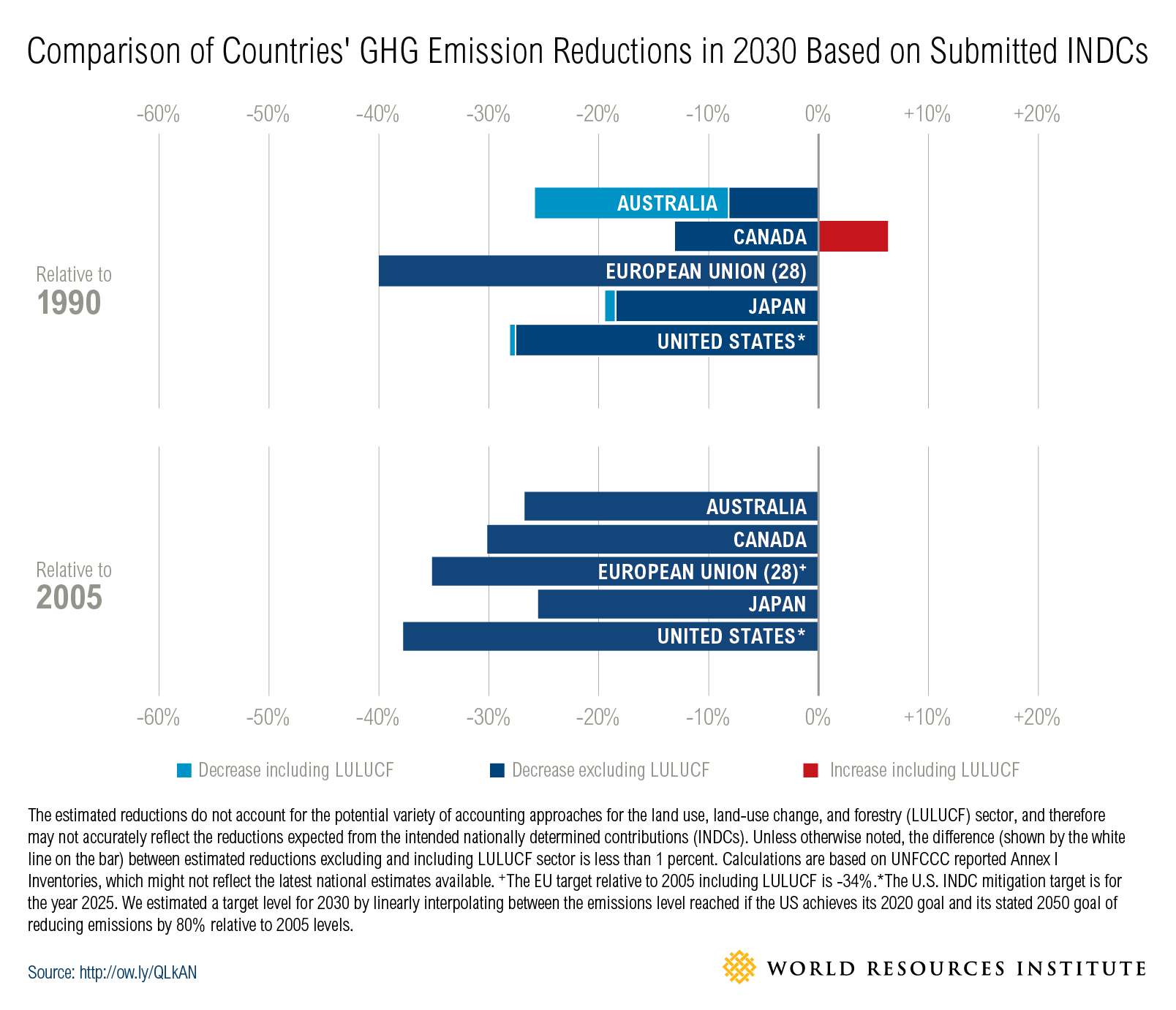Australia, one of the world’s biggest per capita emitters of greenhouse gases and a country that is particularly vulnerable to climate change, has finally released its 2030 carbon reduction target – but to generally scathing reviews.
As expected, the right-leaning government has outlined what many consider a weak effort to reduce the country’s dependence on fossil fuels.
Australian Prime Minister Tony Abbott said on Tuesday that the country will cut emissions by 26-28% compared with 2005 levels by 2030, and the government contends that its reductions are the greatest per capita among its major economic rivals.
But by choosing 2005 as a base year – when, by historical standards, emissions were particularly high – the country’s effort is “pathetically weak”, say opposition politicians.
Meanwhile green groups said the cut was nowhere near the number needed to put Australia on a shared path to reducing emissions fast enough to avoid runaway climate change.
According to analysis by Australia’s Climate Institute, the figures released today will cut Australia’s emissions 20% from 1990 levels by 2030. While according to the same measure, US reductions are to be 32%.
The target is the crux of Australia’s national climate plan, otherwise known as an intended nationally determined contribution (INDC), which all countries have to submit to UN climate talks.
Since the previous government’s carbon tax plan was dismantled in 2013, the centrepiece of Australia’s climate policy has been the Direct Action Plan, which provides incentives for the use of renewable energy and energy efficiency.
But critics say the measures are totally inadequate to shift away from coal and curb greenhouse gases (GHGs) from sectors such as transport.
And Australia isn’t just a major contributor to climate change, it is likely to suffer disproportionately from the impact of a warmer world, too. The country’s vast subcontinental land mass is mainly arid, and its export-oriented agriculture industry, centred around the Murray Basin, relies on dwindling supplies of water.
Record-breaking heatwaves in 2013 forced Australian weather forecasters had to add a new colour on weather maps, and the suburbs of Sydney, Melbourne and Canberra are regularly consumed by deadly and highly unpredictable bush fires.
The country’s main coastal cities, where the vast majority of Australians live, are particularly at risk from rising sea levels, while the country’s tough immigration policy would likely block migrants fleeing rising sea level in Pacific Island states.
And for the last decade, climate policy has been centre stage in Australian politics and even contributed to the ousting of Labour prime ministers Kevin Rudd and Julia Gillard.
Opposition to the scientific consensus that climate change is manmade, and protection of the fossil fuel lobby, is a celebrated cause in right-wing circles. Tony Abbott famously described climate science as “crap”, and has openly mocked the use of renewable energy.
But internationally, Abbott has become increasingly isolated as the US – another resource-rich economy vulnerable to droughts and flooding of major cities – jointly announced GHG cuts with China last year.
Although the US (26-28% by 2025 from a 2005 baseline) and EU (40% by 2030 from a 1990 baseline) targets have been criticised in some quarters as not being deep enough, they are viewed more positively than Australia’s, which places its cuts five years later than what the US has promised.
The Abbott government’s target is even regarded as barely more impressive than the much-derided figure recently proposed by Japan.
President Barack Obama, who outlined the country’s highly divisive Clean Power Plan last week, has confronted the fossil fuel lobby and its political backers in a way that would be unthinkable to Abbott, who takes a binary view on most major issues and is a proud supporter of the resources industry.
That document outlined the moral case to world leaders for strong action on climate change and shift from fossil fuels to low carbon alternatives, but to Abbott, coal is king.
By remaining in hock to the fossil fuel industry, sun-swathed Australia is also failing to fully capitalise on the global renewables boom, say many observers.
What’s more, Australia’s unambitious targets set a poor example to other resource-rich states at upcoming UN climate talks, and a weak deal would put the country’s economic future at risk, says the Australian think-tank the Climate Council.
It says that a predicted increase in droughts could cost 7.3 billion Australian dollars (US$5.34 billion) annually, reducing GDP by 1% per year.
The best hopes for greater climate ambition from Australia probably rest with the result of next year’s general election, where the Labor Party is hoping to win back power from the Liberals as an economic downturn eats into the government’s popularity.
But Labor is riven by internal tensions on what kinds of measures should be used to curb fossil fuels, given the huge numbers of unionised jobs in the resources industry.
The centre-left party has not yet revealed the post-2020 target it would favour, but it did say that the government’s target was not high enough.
It may take many months to emerge whether that’s anywhere near the 50% cut from 2005 levels that some think-tanks claim is necessary.
One thing is for sure though, as the risk of sea level rise increases, Australia’s small island neighbours in the South Pacific will be imploring tougher action in Paris.








